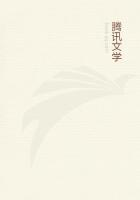The Swiss and the Spaniards were, at that time, regarded as the best soldiers in Europe. The Swiss battalion consisted of pikemen, and bore a close resemblance to the Greek phalanx. The Spaniards, like the soldiers of Rome, were armed with the sword and the shield. The victories of Flamininus and Aemilius over the Macedonian kings seem to prove the superiority of the weapons used by the legions. The same experiment had been recently tried with the same result at the battle of Ravenna, one of those tremendous days into which human folly and wickedness compress the whole devastation of a famine or a plague. In that memorable conflict, the infantry of Arragon, the old companions of Gonsalvo, deserted by all their allies, hewed a passage through the thickest of the imperial pikes, and effected an unbroken retreat, in the face of the gendarmerie of De Foix, and the renowned artillery of Este. Fabrizio, or rather Machiavelli, proposes to combine the two systems, to arm the foremost lines with the pike for the purpose of repulsing cavalry, and those in the rear with the sword, as being a weapon better adapted for every other purpose. Throughout the work, the author expresses the highest admiration of the military science of the ancient Romans, and the greatest contempt for the maxims which had been in vogue amongst the Italian commanders of the preceding generation. He prefers infantry to cavalry, and fortified camps to fortified towns. He is inclined to substitute rapid movements and decisive engagements for the languid and dilatory operations of his countrymen. He attaches very little importance to the invention of gunpowder. Indeed he seems to think that it ought scarcely to produce any change in the mode of arming or of disposing troops. The general testimony of historians, it must be allowed, seems to prove that the ill-constructed and ill-served artillery of those times, though useful in a siege, was of little value on the field of battle.
Of the tactics of Machiavelli we will not venture to give an opinion: but we are certain that his book is most able and interesting. As a commentary on the history of his times, it is invaluable. The ingenuity, the grace, and the perspicuity of the style, and the eloquence and animation of particular passages, must give pleasure even to readers who take no interest in the subject.
The Prince and the Discourses on Livy were written after the fall of the Republican Government. The former was dedicated to the young Lorenzo di Medici. This circumstance seems to have disgusted the contemporaries of the writer far more than the doctrines which have rendered the name of the work odious in later times. It was considered as an indication of political apostasy. The fact however seems to have been that Machiavelli, despairing of the liberty of Florence, was inclined to support any government which might preserve her independence. The interval which separated a democracy and a despotism, Soderini and Lorenzo, seemed to vanish when compared with the difference between the former and the present state of Italy, between the security, the opulence, and the repose which she had enjoyed under her native rulers, and the misery in which she had been plunged since the fatal year in which the first foreign tyrant had descended from the Alps. The noble and pathetic exhortation with which The Prince concludes shows how strongly the writer felt upon this subject.
The Prince traces the progress of an ambitious man, the Discourses the progress of an ambitious people. The same principles on which, in the former work, the elevation of an individual is explained, are applied in the latter, to the longer duration and more complex interest of a society. To a modern statesman the form of the Discourses may appear to be puerile. In truth Livy is not an historian on whom implicit reliance can be placed, even in cases where he must have possessed considerable means of information. And the first Decade, to which Machiavelli has confined himself, is scarcely entitled to more credit than our Chronicle of British Kings who reigned before the Roman invasion. But the commentator is indebted to Livy for little more than a few texts which he might as easily have extracted from the Vulgate or the Decameron. The whole train of thought is original.
On the peculiar immorality which has rendered The Prince unpopular, and which is almost equally discernible in the Discourses, we have already given our opinion at length. We have attempted to show that it belonged rather to the age than to the man, that it was a partial taint, and by no means implied general depravity. We cannot, however, deny that it is a great blemish, and that it considerably diminishes the pleasure which, in other respects, those works must afford to every intelligent mind.
It is, indeed, impossible to conceive a more healthful and vigorous constitution of the understanding than that which these works indicate. The qualities of the active and the contemplative statesman appear to have been blended in the mind of the writer into a rare and exquisite harmony. His skill in the details of business had not been acquired at the expense of his general powers. It had not rendered his mind less comprehensive; but it had served to correct his speculations and to impart to them that vivid and practical character which so widely distinguishes them from the vague theories of most political philosophers.















